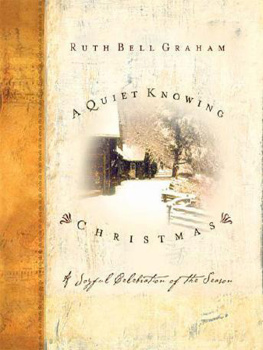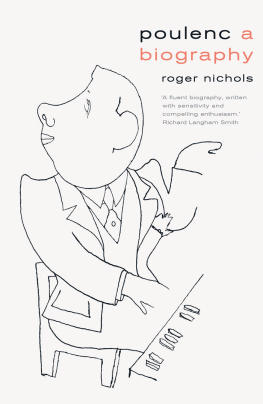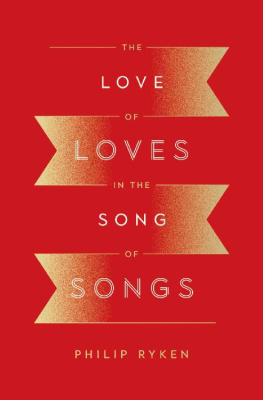Graham Johnson - Poulenc: The Life in the Songs
Here you can read online Graham Johnson - Poulenc: The Life in the Songs full text of the book (entire story) in english for free. Download pdf and epub, get meaning, cover and reviews about this ebook. year: 2020, publisher: Liveright, genre: Non-fiction. Description of the work, (preface) as well as reviews are available. Best literature library LitArk.com created for fans of good reading and offers a wide selection of genres:
Romance novel
Science fiction
Adventure
Detective
Science
History
Home and family
Prose
Art
Politics
Computer
Non-fiction
Religion
Business
Children
Humor
Choose a favorite category and find really read worthwhile books. Enjoy immersion in the world of imagination, feel the emotions of the characters or learn something new for yourself, make an fascinating discovery.

- Book:Poulenc: The Life in the Songs
- Author:
- Publisher:Liveright
- Genre:
- Year:2020
- Rating:3 / 5
- Favourites:Add to favourites
- Your mark:
- 60
- 1
- 2
- 3
- 4
- 5
Poulenc: The Life in the Songs: summary, description and annotation
We offer to read an annotation, description, summary or preface (depends on what the author of the book "Poulenc: The Life in the Songs" wrote himself). If you haven't found the necessary information about the book — write in the comments, we will try to find it.
Poulenc: The Life in the Songs — read online for free the complete book (whole text) full work
Below is the text of the book, divided by pages. System saving the place of the last page read, allows you to conveniently read the book "Poulenc: The Life in the Songs" online for free, without having to search again every time where you left off. Put a bookmark, and you can go to the page where you finished reading at any time.
Font size:
Interval:
Bookmark:



THE LIFE IN THE SONGS
GRAHAM JOHNSON
Translations of the song texts by Jeremy Sams

For Flott, the recital partner of a lifetime

Dame Felicity Lott at the window of the music room of Le Grand Coteau, Noizay.
In Paris they all said How Francis would have loved you,
Composed for you his newest mlodie,
Your voice and style adorable in Poulenc!
While your pianist dreamed that he
Might learn the secret of the absent masters touch
And magically accompany.
OF POULENCS GENIUS, AND OF HIS IMPORTANCE IN FRENCH MUSIC, THERE CAN now be little doubt. It has been more than half a century since his death, and the passing of time has done little to diminish his reputation; indeed, the opposite is true. On the day of his unexpected demise, 30 January 1963, it could not be stated with any certainty that his compositions would endure. Cultural values were changing with dizzying speed in a new age of science, with a British prime minister promising that the future lay in the white heat of technology. The Cuban missile crisis had recently threatened universal destruction, the Soviet Union had launched a man into space, and it seemed as if the arts were destined, or doomed, to rocket into the same trajectory. The serialists of the Domaine musicale and Darmstadt, Pierre Boulez and Karlheinz Stockhausen and their disciples, were convinced that the future of music was theirs for the taking, and that the public would soon be weaned from a diet of compositions by insignificant tonal dabblers. At the times of their passing, both Poulenc and Benjamin Britten (they died thirteen years apart, at almost the same age) had faced up to the prospect of being more or less forgotten.
And yet both composers are now acknowledged as among the twentieth centurys most significant masters of vocal musicsolo, choral, and operaticquite apart from their achievements in instrumental spheres. Poulenc was always content to measure his success and status in national rather than international terms: Parisian opinion counted most, and French song, not German, English, or American, was what really mattered to him. Just as Hugo Wolf in Vienna (caring not at all what Gabriel Faur or Claude Debussy might be doing) opined that no one had written songs like his since Franz Schubert and Robert Schumann, Poulenc (far too diplomatic to boast openly but more direct with friends) was no shrinking violet when it came to his own private estimation of where his mlodies stood in the world: In the field of song I fear no one, and being the best [la primaut] is always very pleasant. Posterity has come to agree with him, more or less: his songs feature on singers programs throughout the world, while those of most of his contemporaries (the other members of Les Six, for example) appear only occasionally and modestly.
But while it is true that Poulencs songs are everywhere loved and enjoyed, one cannot always assume that they are taken seriously. It might be fair to say that some of his music is loved for the wrong reasons, even if treated affectionately and indulgently. To amuse and delight was not his only aim. What it cost Poulenc to create his lifes work has always been underestimated, as has the almost Proustian manner in which he drew on his visual memories and pricked up his avid, pickpocketing ears to create a synthesis of his own past and presenta brand of nostalgia so much his own that nostalgia seems inadequate, not creative and forward-looking enough, just as that word is thoroughly unequal to defining Prousts searches for lost time. Perhaps we are now at a sufficient distance from Poulencs era to understand how truly extraordinary his music is, a one-off. In fact, we should be very grateful that he had a composing career at all; it needed propitious circumstances and great personal determination and bravery, effrontery even, for such a fragile and unusual talent to thrive.
It was similarly touch and go whether Schumann, initially known as a pianist and critic, would become a composer. I regard this great German Romantic as one of Poulencs spiritual antecedents, not least in terms of a mysterious affinity with poets: Schumanns with Heinrich Heine and Joseph von Eichendorff and Poulencs with Apollinaire and Paul luard. Schumanns route to the making of music was spectacularly different from that of his musical forebears: he was inspired by verbal and literary allusions, his piano music of the late 1830s freshly woven from the prose of Jean Paul and E. T. A. Hoffmann. We also hear his homage to composers as widely different as Frdric Chopin and J. S. BachChopin (and later Brahms) receiving open-hearted and generous compliments.
The pathway of Poulenc, pianist and potential dilettante, was strangely similar to that of Schumann. During a remarkable period of musical diversity in the aftermath of the First World War, young Francis became a composer by dint of translating and conjuring his memories and impressions into musical forms of unlikely potency. When vocal lines and Apollinaire poems were added to the mix, the results were even more powerful. His visual take on the world was a vital part of this process, but his memories were also associated with the music he had heard, music of every kind. His assimilations of the work of other composers (the best of whom he acknowledged in a generously Schumann-like manner) are love-borrowings, and thus nostalgic by their very nature, rather than plagiarism. Poulenc invented an allusive category of imitation-cum-originality hitherto unknown in music, which is, somewhat paradoxically, definitively inimitableas several would-be Poulenc imitators have found out to their cost.
I now see Poulenc (and who he is as a musician) differently from when I first took to the airwaves of BBC Radio 3 in 1977 to present, with Elaine Padmore, a series of thirteen substantial programs encompassing all of Poulencs songs, entitled Journal de mes mlodies. One of my principal sources of information was the Correspondance, gathered together by Hlne de Wendel and published in 1967. In it there was hardly the sounding of a problematic note: all was luxe, calme, and a very respectable kind of voluptwith mention of neither homosexuality nor emotional crises. An almost complete discretion was maintained by the composers great baritone Pierre Bernac, still alive and teaching at the time, who had taught me in master classes and journeyed to London to record with me LHistoire de Babar, le petit lphant. As part of the BBC series, I interviewed Bernac, who knew everything about the darker side of Poulencs nature but was prepared to divulge very little, even years after the composers death. The only thing he mentioned, in private conversation, was his fear for Poulencs safety when he insisted on going out in the middle of the night (when the duo were on tour) to look for sexual adventure, leaving his wallet in the safekeeping of his singer colleague.
Font size:
Interval:
Bookmark:
Similar books «Poulenc: The Life in the Songs»
Look at similar books to Poulenc: The Life in the Songs. We have selected literature similar in name and meaning in the hope of providing readers with more options to find new, interesting, not yet read works.
Discussion, reviews of the book Poulenc: The Life in the Songs and just readers' own opinions. Leave your comments, write what you think about the work, its meaning or the main characters. Specify what exactly you liked and what you didn't like, and why you think so.










